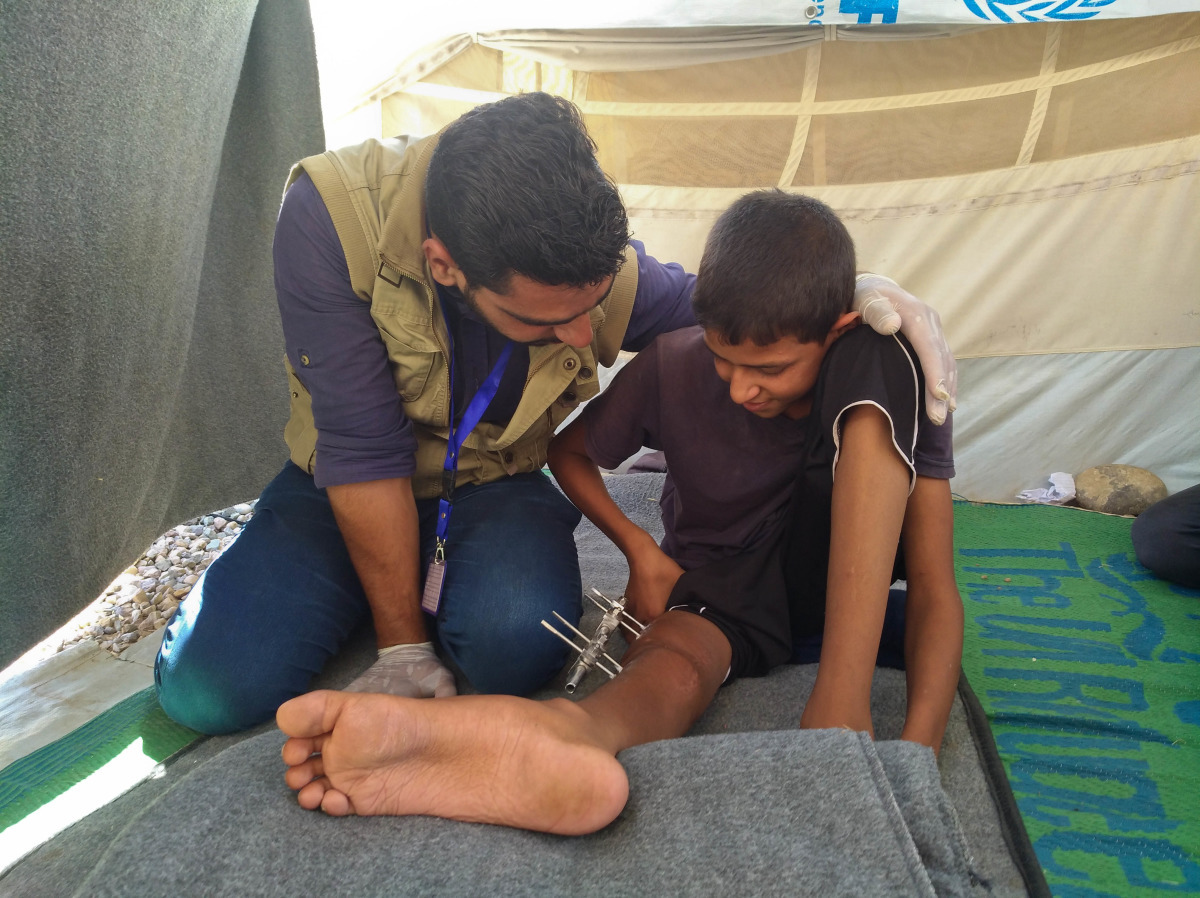56 countries have received official invitations to gather in London this week for the world’s largest arms fair. As buyers and sellers of arms are networking and making preliminary deals, we must not forget the appalling impact explosive weapons have on civilians and encourage all arms users to stop the use of explosive weapons in populated areas.
Families trapped under rubble, children maimed by bombs, hospitals destroyed by air strikes... the tragedy happening in war torn countries right now highlights the devastating impact of explosive weapons. When these weapons are used in populated areas, 92% of people killed and injured are civilians. In 2016 they were 45,624 children, women and men.
Civilians exposed to the effects of explosive violence are marked for life.
Besides killing and causing horrific injuries, explosive weapons spread terror, make people fear for their lives and destroy vital infrastructures. Shelters, hospitals and schools are being destroyed by bombs. Water and electricity networks are also ruined leading to food and water insecurity.
Every day, our teams on the ground meet people who were at home, in the street or visiting friends when they were seriously injured in bomb attacks. Some have lost one or more relatives.
People like 13-year-old Abdallah from Iraq who was caught in an explosion in Mosul with his best friend. He told our team:
“I was sitting in the street with my best friend. Suddenly, a missile fell right next to us and there was a huge blast. Then I couldn’t feel anything. I tried to get up three times but each time I fell down again. My leg was covered in blood. I tried to crawl over to my friend and cried out for help. The neighbors came and laid us on blankets and then took us to hospital. I was in surgery for two hours. My best friend died two or three days later. That’s my story.”
Abdallah suffered a serious fracture in the explosion. Our team is providing him with rehabilitation care but also psychosocial support as he suffers from acute distress and often feels extremely anxious as a direct result of his trauma.

© E. Fourt/Handicap International
Indeed, the impact on the mental health of civilians exposed to the effects of explosive violence is extremely worrying.
And danger does not disappear when the conflict ends. The legacy of explosive weapons makes it dangerous for the local population to return. Civilians who return home are exposed to the danger of weapons that did not explode on impact, called “explosive remnants of war”.
Parties to present-day conflicts appear to think it’s normal to bomb populated areas, such as towns and villages, without regard for civilian lives. But according to international humanitarian law (IHL), combatants must take all necessary precautions to spare the civilian population, who must not be subjected to indiscriminate or disproportionate attacks.
While many countries are gathering today at the world's largest arms fair, I think it is a good time to remind everyone to fully defend and enforce these fundamental principles of IHL.
STOP Bombing Civilians
This week, Handicap International is launching its Stop Bombing Civilians international campaign. The campaign includes an appeal to members of the public worldwide to take selfies with the word “STOP” on their hand and to post them on social media along with the hashtag #StopBombingCivilians.
Handicap International is also calling on the public to sign its international petition with a target of gathering one million signatures by September 2018. This petition, which already has more than 320,000 signatures, will be presented to political decision-makers.
Blog reposted from Huffington Post UK





